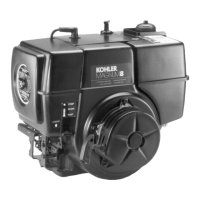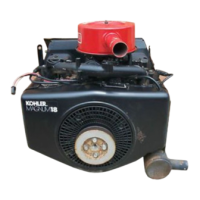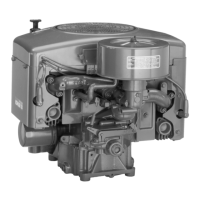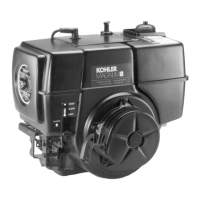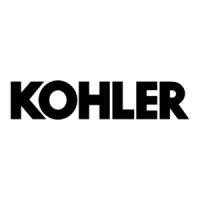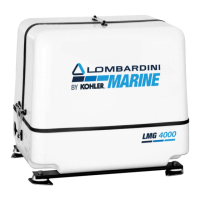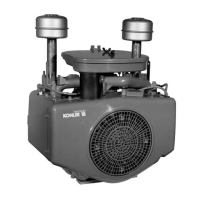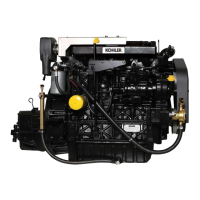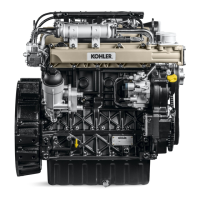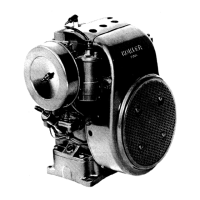Do you have a question about the Kohler Magnum MV16 and is the answer not in the manual?
Lists required maintenance tasks and their recommended frequency for engine upkeep.
Offers a guide to diagnose and resolve common engine problems based on symptoms.
Lists causes and solutions for engines that won't start, miss, or run lean.
Addresses issues related to fuel leaks originating from the carburetor.
Offers solutions for an engine that is difficult to start or starts erratically.
Discusses problems and fixes for an engine that fails to idle properly.
Explains common causes of engine overheating and how to address them.
Covers potential causes for engine knocking and recommended solutions.
Addresses issues leading to a loss of engine power and provides corrective actions.
Identifies reasons for excessive oil consumption and methods for resolution.
Discusses potential causes and solutions for low cylinder compression.
Describes the engine's fuel system, including its components and operation.
Continues the discussion on the fixed jet carburetor, detailing its major components.
Further troubleshooting tips for carburetor issues, presented in a condition/remedy format.
Details specific adjustments for idle fuel needle and main fuel needle on the carburetor.
Introduces the centrifugal flyweight mechanical governor system.
Explains how the governor operates and how to adjust its initial, sensitivity, and high speed settings.
Describes the full-pressure lubrication system used in Magnum engines.
Details the electronic magneto ignition system, its components, and operation.
Provides a troubleshooting guide for common ignition system problems.
Presents wiring diagrams and information on battery charging systems for twin cylinder engines.
Details the 15 Amp regulated charging system for electric start engines.
Offers troubleshooting steps for issues related to the 15 Amp battery charging system.
Describes the 25 Amp regulated charging system for electric start engines.
Provides troubleshooting steps for the 25 Amp battery charging system.
Covers battery types, testing procedures, charging, and maintenance for the engine.
Initial steps for engine disassembly, including disconnecting electrical and fluid components.
Covers the removal of external engine components like the governor, intake, and carburetor.
Covers the removal of the oil pan and related lubrication system components.
Provides detailed instructions for splitting the engine crankcase.
Guides on removing the crankshaft, oil seals, and bearings.
General guidelines for inspecting and reconditioning engine components.
Illustrates and describes common valve conditions like gum deposits, carbon cuts, and leakage.
Illustrates common types of piston and ring damage, such as stuck rings, worn rings, and scratches.
Explains the features and inspection of Posi-Lock connecting rods.
Covers inspection and service for the camshaft and crankshaft, including bearing checks.
Provides a recommended sequence for reassembling the engine after service or repair.
Details the installation process for the oil pump, including the drive gear and spacer.
Provides instructions for installing connecting rods, including lubrication and torque specifications.
Details the installation of bearings and the crankshaft, including alignment and lubrication.
Covers the installation of tappets and the camshaft, including end play measurement.
Covers the installation of the oil pickup screen, relief valve, and oil pan.
Explains how to measure valve-to-tappet clearance at Top Dead Center.
Final checks and preparations before starting the engine after reassembly.
Explains the procedures for testing the engine after it has been reassembled.
